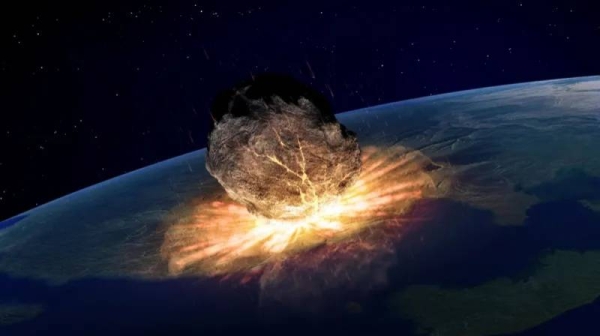A team of scientists recently made a groundbreaking discovery about a massive meteorite that crashed into Earth three billion years ago. The space rock, known as S2, was 40-60km wide and had a mass 50-200 times greater than the one that led to the extinction of the dinosaurs. This impact caused a tsunami larger than any in known human history and boiled the oceans, drastically altering the early Earth’s landscape. The impact site, located in South Africa, is one of the oldest places on Earth with remnants of a meteorite crash.
Professor Nadja Drabon from Harvard University led the research team that traveled to the impact site to collect rock samples for analysis. Despite the challenges of navigating remote mountains and being accompanied by rangers armed with machine guns for protection, the team was able to collect hundreds of kilograms of rock fragments left behind by the meteorite impact. These rock samples helped the scientists reconstruct the events that followed the impact of the massive meteorite.
The impact of the S2 meteorite would have created a 500km crater and ejected rocks at incredibly fast speeds, forming a cloud that circled the globe. This event would have generated massive amounts of heat, boiling the oceans and causing significant evaporation of water. The tsunami that swept across the planet would have been devastating, far surpassing the 2004 Indian Ocean tsunami in scale. Despite the catastrophic events that followed the impact, the rock evidence suggests that the violent disturbances churned up nutrients like phosphorus and iron that fed simple organisms.
Contrary to expectations, the new findings indicate that early life on Earth was actually helped by these violent impacts. The disruptions caused by the meteorite impacts acted as a giant fertiliser, sending essential ingredients for life like phosphorus around the globe. The tsunami that swept the planet would have brought iron-rich water from the depths to the surface, providing early microbes with extra energy to thrive. This new perspective challenges previous assumptions about the effects of massive meteorite impacts on early life on Earth and suggests that these events may have actually facilitated the thriving of simple organisms.
The research findings, published in the scientific journal PNAS, shed light on the resilience and adaptability of early life on Earth in the wake of catastrophic events like meteorite impacts. The study contributes to a growing understanding among scientists that violent impacts in Earth’s early history may have played a critical role in the evolution and proliferation of simple organisms. Professor Drabon and her team’s work provides valuable insights into the complex interactions between meteorite impacts, environmental changes, and the development of life on Earth billions of years ago. This discovery opens up new avenues for further research into the impact of extraterrestrial events on the early history of the planet and the evolution of life.











